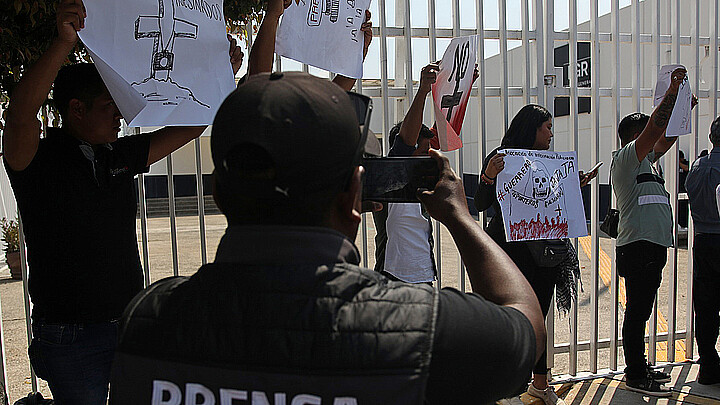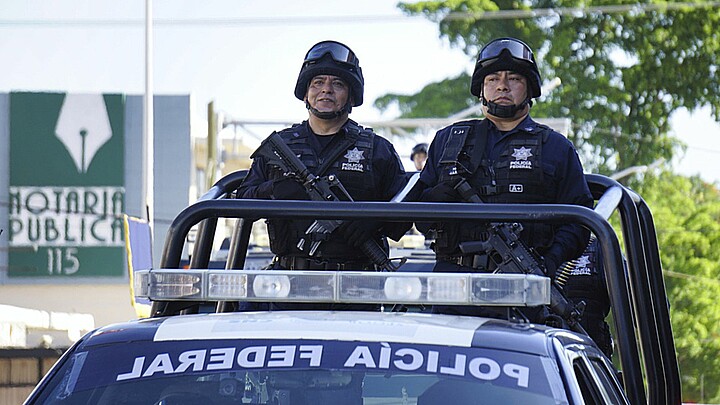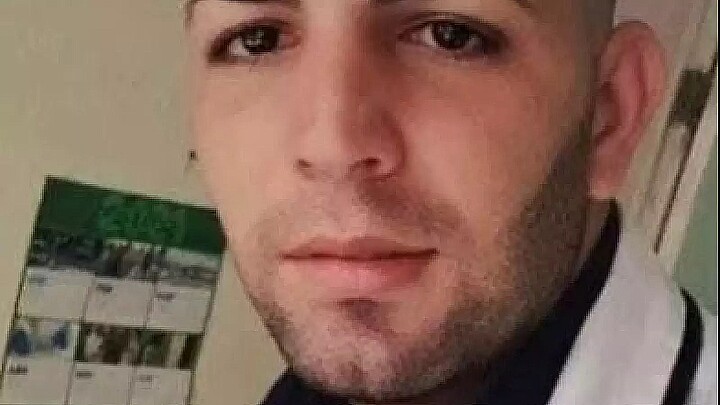Crime
Mexico: More than 10,000 march against drug trafficking violence amid cartel wars
The demonstration occurs after armed clashes between the Sinaloa Cartel (CDS) and the Jalisco New Generation Cartel (CJNG)
September 14, 2024 1:08pm
Updated: September 16, 2024 7:42am
An estimated 10,000 people of different ethnicities including human rights defenders, retired teachers, transporters and parishioners from the Catholic Church, marched this Friday in the Mexican state of Chiapas to demand that the government end drug trafficking violence.
The march comes in the wake of a spike in cartel and gang violence between the Sinaloa Cartel (CDS) and the Jalisco New Generation Cartel (CJNG) that has also seen a spike in illegal drug trafficking.
ADN has reported numerous incidents of cartel violence impacting Mexican citizens, foreign tourists and cartel wars between rival criminal syndicates.
“Chiapas is a time bomb,” said Diocese of San Cristóbal de Las Casas parish priest Marcelo Pérez, at the beginning of the pilgrimage march. “There are many missing people, many kidnapped people, there are many disappearances, many murders due to the presence of organized crime in Chiapas.”
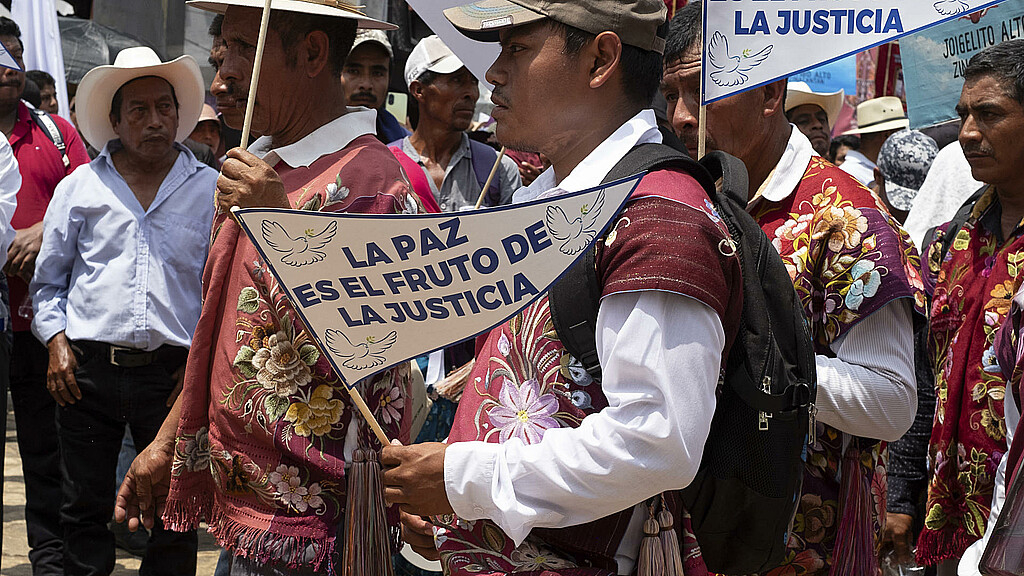
Pérez, a Simojovel based indigenous priest and human rights defender coordinates the Social Pastoral of the Province of Chiapas, which integrates the Dioceses of the municipalities of San Cristóbal de Las Casas, Tapachula and Tuxtla Gutiérrez.
He works closely with religious organizations that promote the collective rights of indigenous people and denounces efforts and trends that threaten their beliefs and autonomous living.
The activist priest said that in recent days “violence has tripled.” He said violence had dramatically increased throughout Mexico, even in towns that are located near the Guatemalan border.
“There are kidnappings, murders, recruitment of children and forced displacement,” Pérez said while characterizing Mexico as an environment of intimidation.
The contingent was made up of indigenous Mayan Tzotziles, Tzeltales, Tojolabales, Choles and Zoques, and included Baptist church parishioners and members of the El Pueblo Creyente civil rights organization.
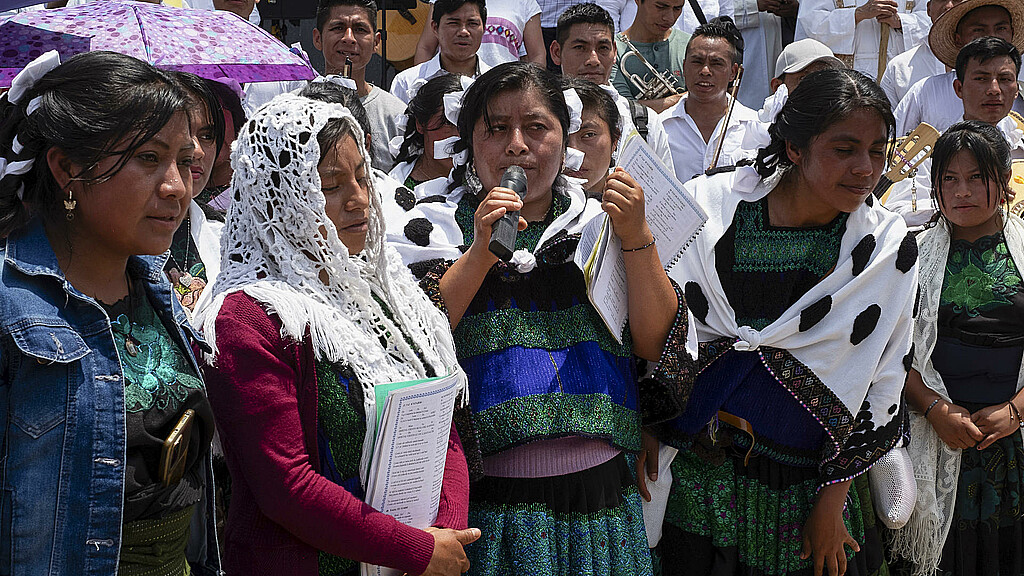
The massive collective gathered at the Central de Abastos de Tuxtla Gutiérrez and ended their march with a prayer under a scorching sun and temperature of 104 degrees.
The peaceful march was made up of women, adolescents and older people who carried white flags, as a symbol of peace, as well as badges in the shape of bows: white, green, red and yellow, and banners with the messages “peace,” “peace for Chiapas,” “peace for Simojovel.”
Some banners carried the slogan that, “Peace is a cry that deserves to be heard!”
“We know that up there (in the Sierra de Chiapas) people do not make themselves heard because they are subjugated,” said Tapachula resident Dulce Ríos, who highlighted the participation of women in the demonstration.
Speaking out for young people, Anahí Ríos said the protest was for “those who do not have a voice,” adding that “it is our task to be the voice of those who are now refugees, displaced, hidden, subjected to [violent] circumstances.”
The protesters also called for an end to the megaprojects of the government’s forced displacements, land dispossession, impacting all Mexicans regardless of age and gender.
Just last Wednesday at noon in the heart of Villaflores, a shootout broke out between organized crime hitmen and Mexican Armed Forces agents.
Authorities said that eight people were arrested as participants in the shootout, including hitman Marco “N” alias “El Peligro,” and that weapons were confiscated.
At the end of the march, a group of Catholics celebrated a mass in memory of those who have died without justice and prayed “for the government to recognize the terror in Chiapas."
Both religious leaders and citizens vowed to continue mobilizing until their demands were heard.


